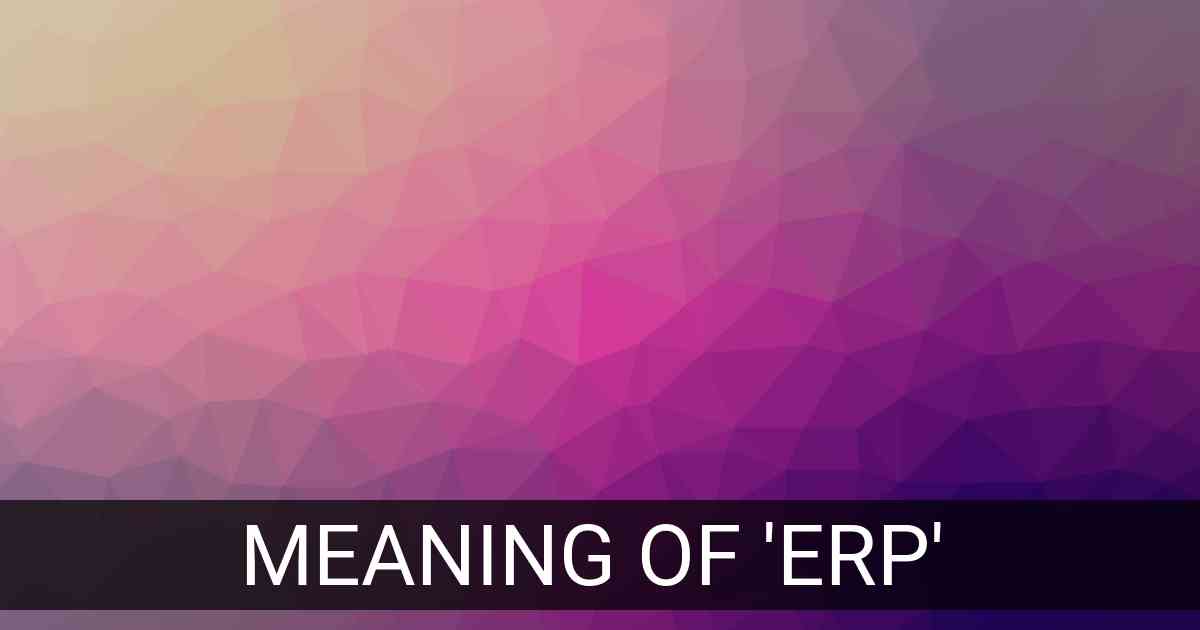
The meaning of ‘ERP’ in Server/IT Infrastructure is ‘Enterprise Resource Planning’.
Meaning of ‘ERP’
ERP stands for Enterprise Resource Planning. It is a type of software system used by organizations to manage and integrate their business processes. This includes the areas of finance, inventory management, human resources, customer relationship management, and other areas of business operations.
ERP systems are designed to help businesses become more efficient and improve their overall performance. They allow companies to streamline their processes and reduce costs. ERP systems are used to automate the tasks that would normally have to be completed manually. By automating these processes, businesses can save time and money while increasing productivity.
The main purpose of an ERP system is to provide an integrated view of all the different aspects of the business operations. The software helps businesses better understand how their different departments work together in order to achieve maximum efficiency. An ERP system helps managers better track projects and resources, as well as identify potential problems before they arise.
An ERP system also allows companies to track customer data across multiple locations. This helps them improve customer service by providing real-time access to customer information from any location. With an ERP system, companies can easily monitor sales trends, inventory levels, and customer satisfaction levels in order to make informed decisions about their products or services.
An ERP system also offers businesses a way to integrate their financial activities with other parts of the organization such as human resources, manufacturing or distribution operations. By having the ability to collect data from multiple sources into one central database, companies can gain greater insight into their finances and make better decisions about how they use their resources.
In addition, an ERP system enables users to access information quickly and accurately through mobile devices or online platforms such as web applications or dashboards that display up-to-date information on demand in a single interface format that makes it easy for users to analyze data quickly without having to go through multiple steps .
Finally, an ERP system provides organizations with a comprehensive platform for managing all aspects of their business operations which can help them increase efficiency while reducing costs associated with manual labor, paperwork or inefficient processes . Businesses can also use an ERP system for forecasting future performance so they can plan ahead for potential issues or opportunities before they arise .
Overall , Enterprise Resource Planning (ERP) is a powerful tool for managing complex business processes more effectively and efficiently . By using this type of software , businesses can streamline operations , save costs , improve customer service , get better insights into financial activities , access data quickly , forecast future performance , and much more .
Queries Covered Related to “ERP”
- What is the full form of ERP in Server/IT Infrastructure?
- Explain full name of ERP.
- What does ERP stand for?
- Meaning of ERP

